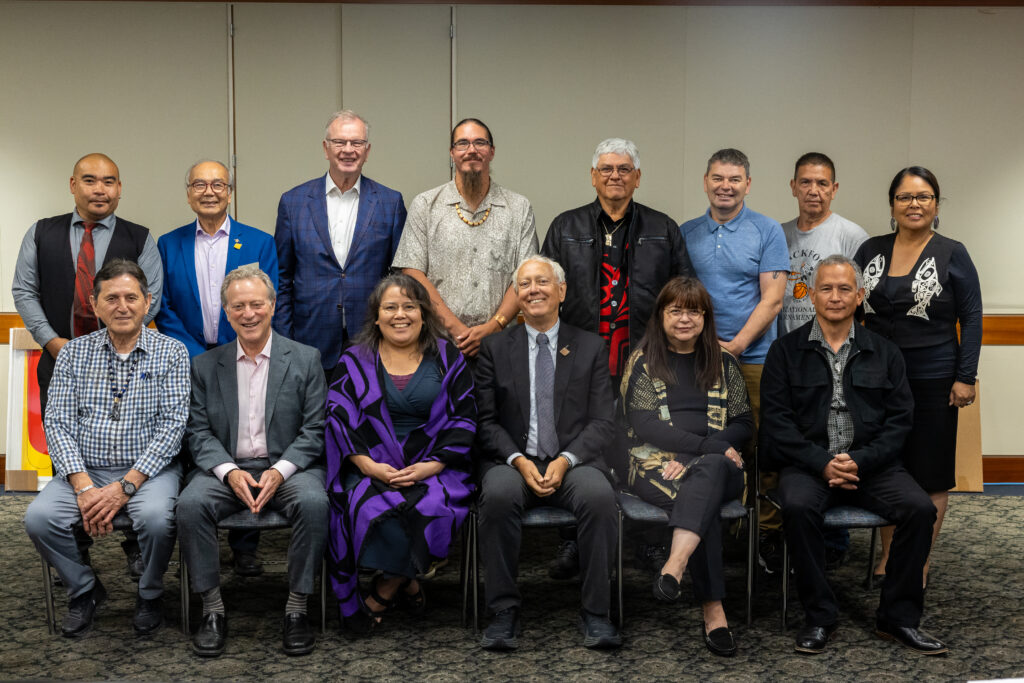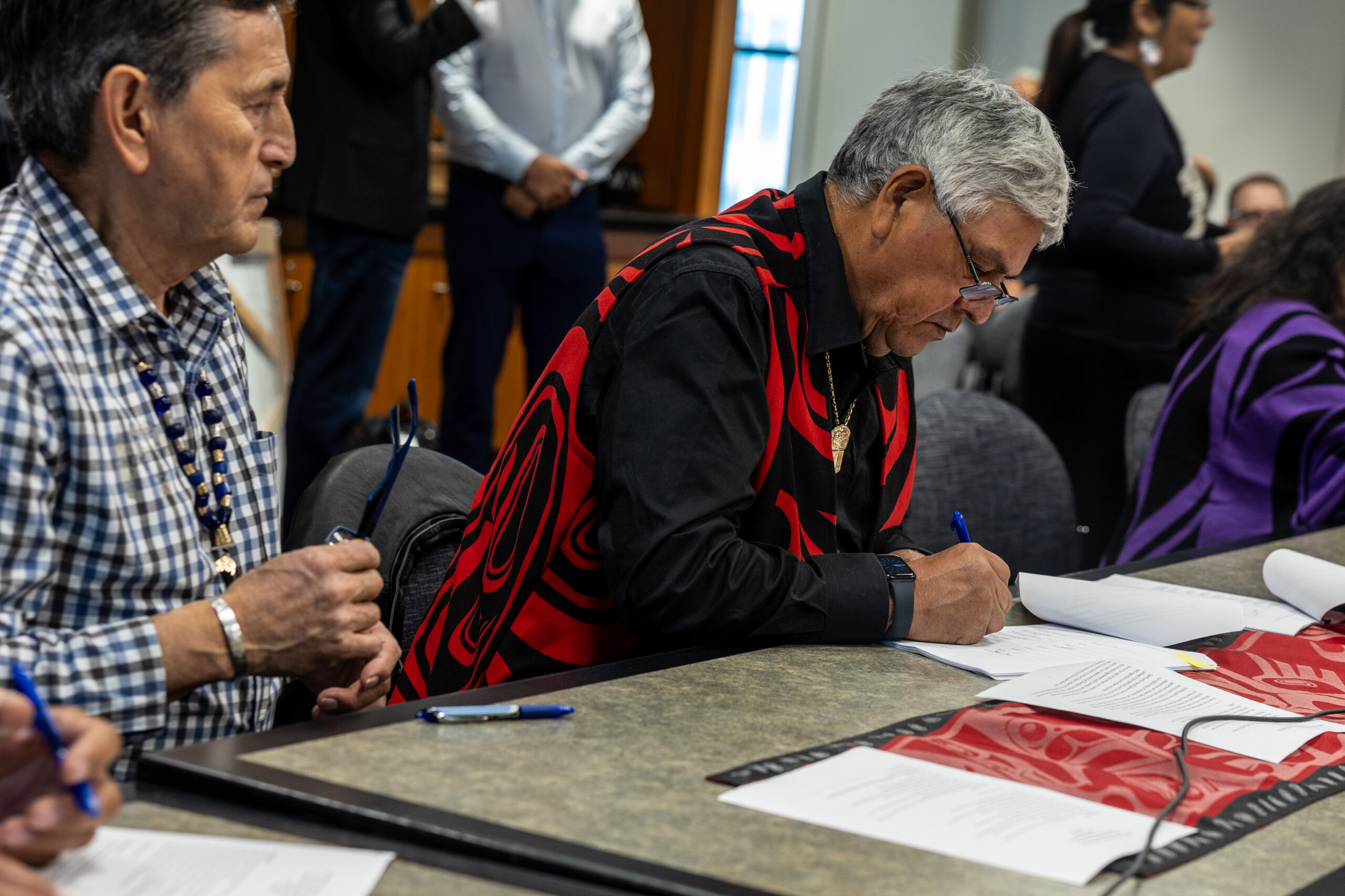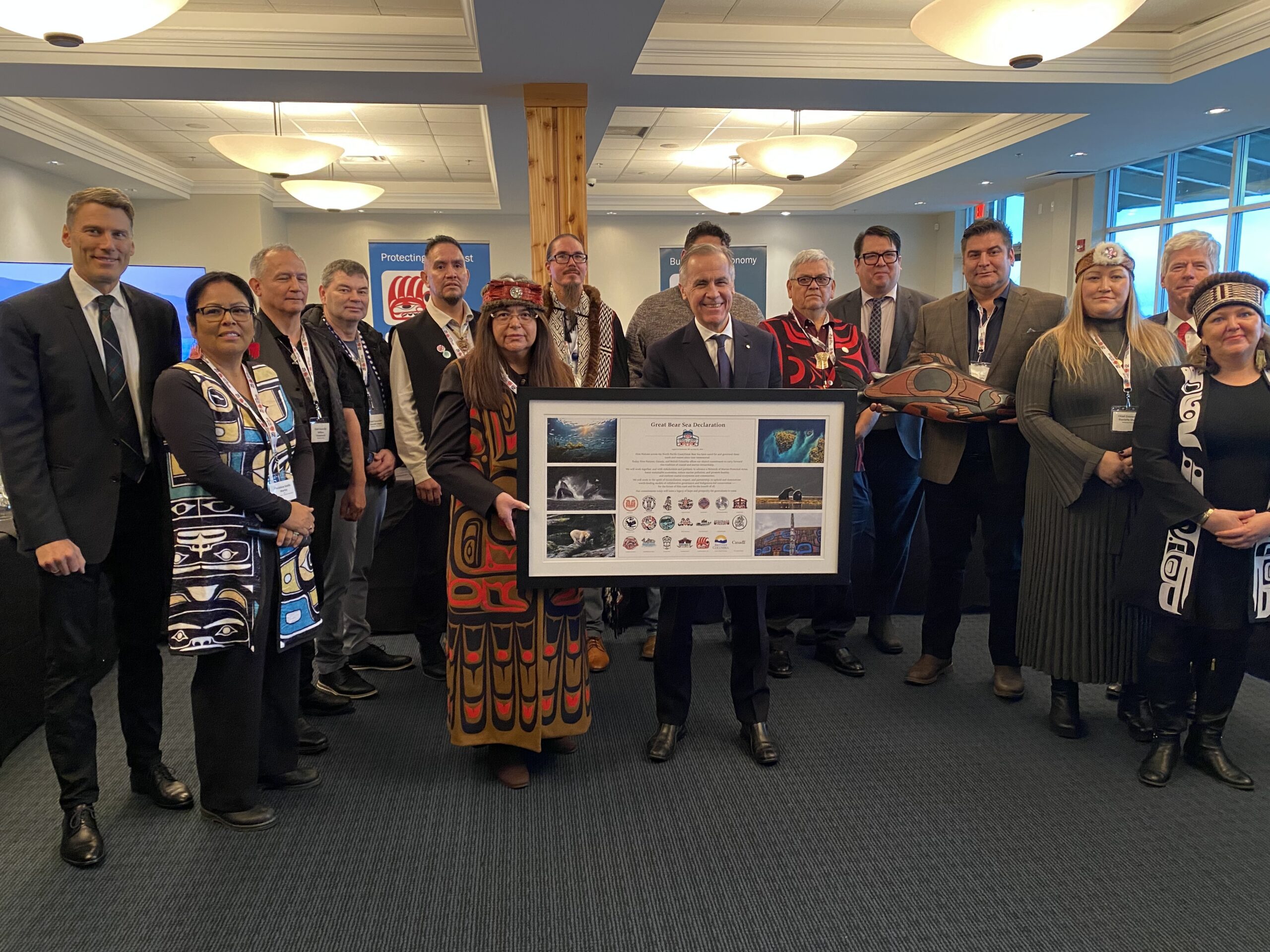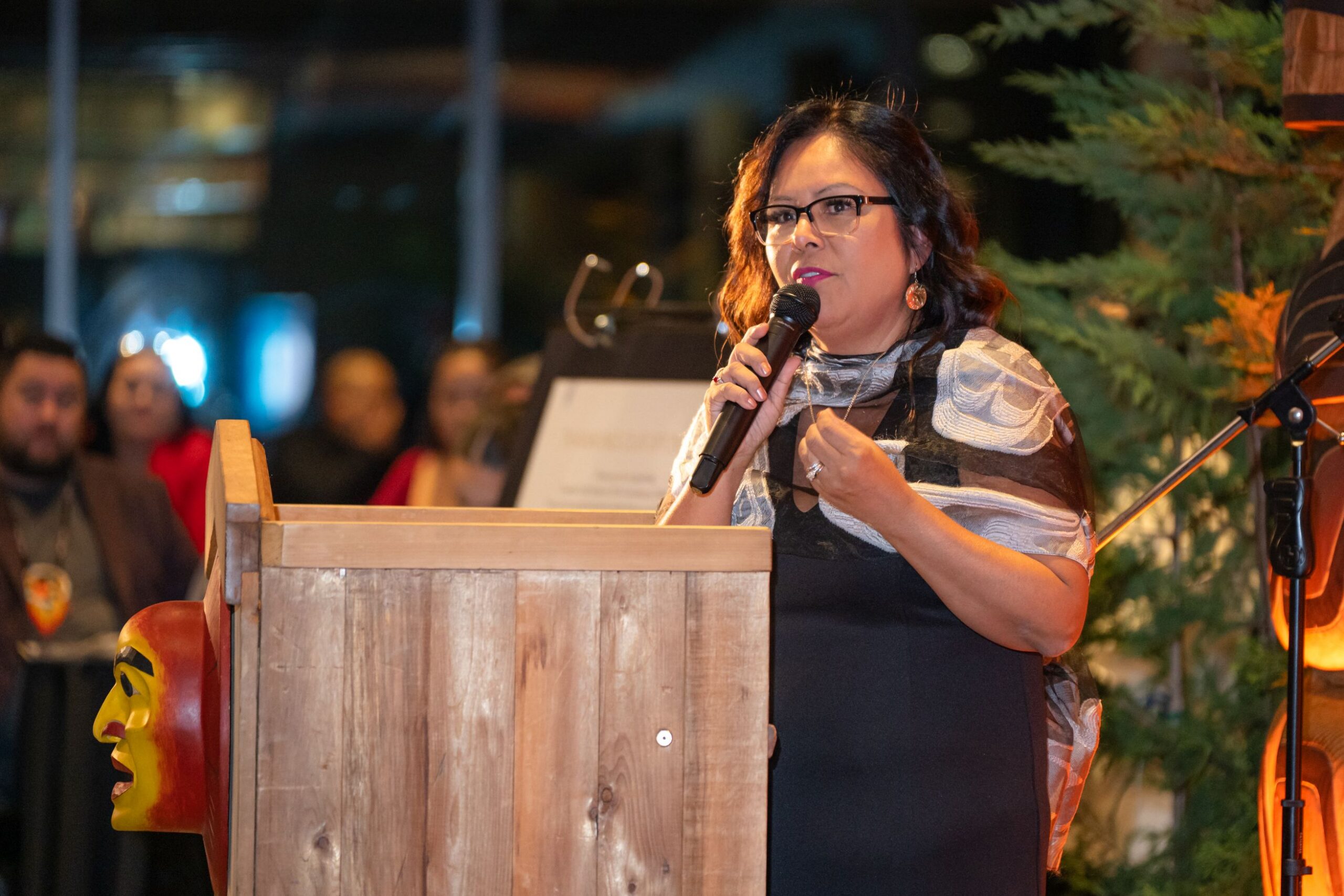Photos by Emilee Gilpin
FOR IMMEDIATE RELEASE
Vancouver – The Coastal First Nations-Great Bear Initiative (CFN) and the Government of British Columbia are strengthening their decades-long relationship by renewing their commitment to work together through a reconciliation agreement that builds off the success of their 2009 reconciliation protocol and 2020 Pathway to Reconciliation memorandum of understanding (MOU), to continue to benefit all those who live on the north and central coast.
“First Nations of the north Pacific coast and the B.C. government have already accomplished so much together,” said Christine Smith-Martin, chief executive officer of the Coastal First Nations-Great Bear Initiative. “We have improved land and marine use planning throughout the Great Bear, creating one of the largest Indigenous-led carbon offset projects in the world and launching a marine protected area network that sets a new precedent for conservation and sustainable management. Our leaders look forward to working together on Reconciliation 2.0, and building on the collaborative decision-making structures that continue to chart a path toward true reconciliation.”
The Province is contributing $1.6 million annually for implementation funding for four years to help facilitate government-to-government forums between B.C. and the alliance of First Nations as they work together to address shared goals related to integrated land, marine stewardship and economic revitalization in the north Pacific coast bioregion, as well as shared challenges like climate impacts and food security.
“B.C. and the coastal First Nations have a long history of successfully working together on marine stewardship and economic initiatives on the central and north coast,” said Murray Rankin, Minister of Indigenous Relations and Reconciliation. “This agreement builds on that history as we continue to work together on a strong governance framework to manage our coastal resources sustainably, so our communities continue to live off their abundance for generations to come.”
The agreement consolidates and builds on the 2009 reconciliation protocol and 2020 Pathway to Reconciliation MOU and outlines how coastal First Nations and the Province will work together in partnership to increase the quality of life throughout the area. This includes First Nation-led sustainable economic ventures, such as shellfish harvesting, clean energy, and opportunities in coastal forestry, and reinforces CFN’s conservation efforts in the Great Bear Rainforest. In addition, it further promotes CFN-led steps on improved communications and enhanced digital services and technology, benefiting the entire north Pacific coast.
Learn More
- View the 2024 Coastal First Nations and British Columbia Reconciliation Agreement.
- View the 2020 Memorandum of Understanding.
- View the 2016 Reconciliation Protocol.
Media Contacts
Emilee Gilpin
Media Relations
Coastal First Nations- Great Bear Initiative
514 701-9093
Ministry of Indigenous Relations and
Reconciliation
Media Relations
250 882-3316
Media Backgrounder
- CFN signatory Nations to the agreement include Wuikinuxv, Heiltsuk, Kitasoo Xai’xais, Nuxalk, Gitga’at, Metlakatla, Old Massett, Skidegate, and Council of the Haida Nation. Their collective territories span the central and north coast of the province.
- On Dec. 10, 2009, B.C. and CFN member Nations entered into the 2009 reconciliation protocol, which focused on collaborative approaches to land and resource management and implementing economic initiatives, as a foundation for broader reconciliation over time. The reconciliation protocol was amended and renewed several times — most recently in 2016.
- In 2020, CFN and B.C. signed a memorandum of understanding (MOU) to work together on a longer-term vision that built on the successes of the reconciliation protocol to pursue a conservation-based regional economy through a diverse set of initiatives to promote financial self-reliance.
- The 2024 agreement is the culmination of the work set out under the 2020 MOU. The agreement:
- renews and updates the shared decision-making framework that forms the basis of the 2009 protocol, and enhances its operational framework for efficient implementation of integrated land and resource management;
- renews and updates the primary fiscal arrangements in the 2009 protocol, including the Great Bear Rainforest carbon offsets sharing framework;
- builds on the offset sharing framework with a new initiative to develop a comprehensive fiscal framework for self-governance, stewardship and economic development;
- establishes a new set of initiatives to support coastal communities to take advantage of opportunities in clean energy;
- establishes a process for the 2020 MOU’s commitment to explore potential joint or consent-based decision-making for inclusion in a future negotiated agreement, with the identification of aquatic plant harvesting authorizations as an area of interest;
- establishes a new set of initiatives to support coastal communities to respond and adapt to climate impacts; and
- builds on successful revenue-sharing initiatives under the 2009 protocol and its extending agreements with new economic development initiatives focused on revitalizing Indigenous and market economies.



